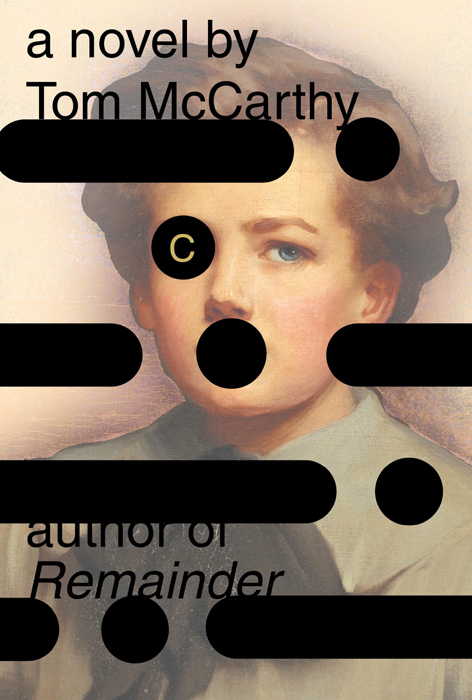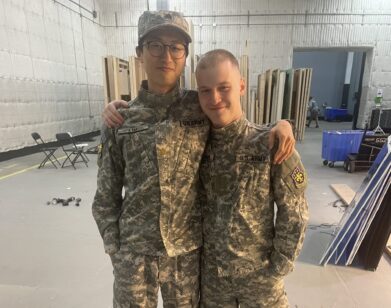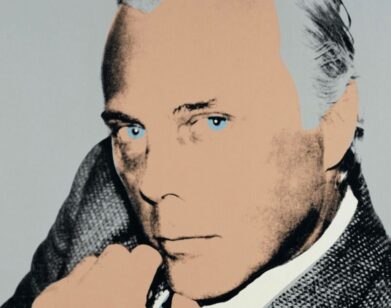Like a Fake 19th Century Novel: Tom McCarthy’s C

Depending upon your perspective, Tom McCarthy is either a terrifying or enlightening presence in the world of contemporary fiction. His first novel, Remainder, languished for years without a publisher before Metronome Press, the avant-garde French art publisher, gave it a chance. Now it’s a raved about bestseller that has won The Believer‘s annual book award, been optioned for a film, and fawned over by Zadie Smith, who wrote in a 2008 New York Review of Books essay, “It is easy to feel that Remainder comes to literature as an assassin, to kill the novel stone dead. I think it means rather to shake the novel out of its present complacency…We could call this constructive deconstruction, a quality that, for me, marks Remainder as one of the great English novels of the past ten years.”
That’s saying something for a short, fiercely modern novel–in the vein of Beckett, Pynchon, and Ben Marcus, who’s invited McCarthy to teach at Columbia next year–about an obsessive-compulsive millionaire who maniacally attempts to re-enact his only authentic moment with the £8.5 million payout he was given after an undisclosed accident erases his history. Especially when you consider McCarthy, the general secretary of the International Necronautical Society, a semi-fictitious art collective, identifies more with artists than he does with writers. The latter, however, may find more kinship with him after today’s publication of his third novel, C (Knopf).
The narrative follows Brit protagonist Serge Carrefax, who grows up in the English countryside experimenting with early radio communications (alongside his science-loving sister, Sophie, and thwarted inventor father, Simeon) at a bucolic silk factory/school for the deaf called Versoie. As he goes on to fight and develop a mean morphine-death-addiction as an aerial observer during WWI, nearly killing himself back at home, to end up in Egypt surveying land for a BBC communications tower. Through each phase McCarthy explores the anti-humanist tendencies that played out between the first Marconigrams to the BBC’s inevitable take over of the airwaves in 1922. “It’s like a fake 19th century novel, and I wanted to use that realist mode as a main frame or Trojan horse to smuggle in much more modernist and avant-garde preoccupations, but in a way that would be legible,” jokes McCarthy, who called in from London to discuss his new literary smuggling operation, his various art projects, and the great American novel (from Updike to Franzen).
SLENSKE: I just read C over the weekend. Where do you start something like this?
McCARTHY: I was doing an art project at the ICA in London and it involved a set of radio transmissions. So there’s this scene in a movie by Jean Cocteau called Orphée, which is like his telling of the Orpheus story, but for him it all revolves around the radio, so Orpheus is communicating with the underworld via radio and I’d kind of taken that and almost repeated it. I set up a radio station in this gallery and sent out all these transmissions by cutting up other media and I was doing a lot of research around emergent telecommunications in the early 20th century.
SLENSKE: For a novel?
McCARTHY: No, for this project, and it was weird because every time there was a new communications technology method there appears to be a dead family member one link down the chain. Like Alexander Bell lost two brothers, and in fact after the first one died he and the other one made a pact that if the other one died the remaining one would invent a device capable of communicating with the dead. Then the other brother did die and the telephone’s invented. He ended up not believing in an afterlife because his brother never called. With Marconi as well there’s always some kind of relation to bereavement and mourning in the background of these inventions and I don’t know, I was just looking at this period and then I had the idea for the book: dead siblings, technological inventions, and then 1922, the years the BBC was founded, that marks this anarchic period of many–too many–wireless that so mirrors the early years of the internet. It’s also the year that Tutankamen was discovered, which is another family crypt.
SLENSKE: Alot of that mirrors the principles of the International Necronautical Society as well, which are to find this new space of death right?
McCARTHY: Well, the art project was an INS project. It was framed as the INS propaganda broadcasting unit and people could visit it. It looked like a James Bond operations room with lots of people gathering data and transmitting it. This book definitely came out of an INS project and the INS projects come out of the books. I was quite involved in the art world and I still find the art world tends to be the type of place where lots of literary ideas get played out in a much more uncensored way because curators, unlike publishers, are not so concerned about the bottom line. The art world seems to be a much more literary space than large swatchs of the mainstream publishing world, paradoxically.
SLENSKE: What artists are you interested in right now?
McCARTHY: I’m working with Omer Fast. He makes films, they’re more like art films. He made this one called Nostalgia and another one called CNN Concatenated, where he just mashes together all these different CNN presenters talking to make his own text. All his work is about mediation and trauma, kind of the same as Remainder in a way, so I love his work. I’ve also worked recently with Johan Grimonprez. I wrote him a text to go in his movie Double Take, which is all about doubles and revolves around Alfred Hitchcock and the Cold War and stuff. Those are just two examples but on the whole I think contemporary artists are quite savvy about technology and media and how that plays out in writing or art-making. There’s not that naturalism you get in so much fiction that I think is regressive and a dead end. But there’s lots of good fiction as well.
SLENSKE: You said recently that it’s a great time to write good fiction.
McCARTHY: Yeah, it is. It’s a great time to write good fiction, it’s just very difficult to publish it, but I think especially in America, I really like what Ben Marcus is doing.
SLENKSE: All you can read about right now is Jonathan Franzen. What do you make of a book like Freedom?
McCARTHY: You know what, I haven’t read his work. Really, I haven’t. It hasn’t come on to my radar yet and maybe it will and maybe I’ll love it.
SLENSKE: What are your feelings about those big, generation-defining American novels?
McCARTHY: Well, I loved Updike’s Rabbit books. I thought they were fantastic. What’s interesting about Updike, I guess you could say he’s a gritty realist but Updike studied in Paris, he read Blanchot and Bataille and Beckett, especially Blanchot, and he got a taste for that abstract sensibility, being towards death and the voids that open up within language, and he takes it out its French context and plants it down in a used car salesman in middle America and it’s genius. It’s so clever. In a way, this is the paradox. So much of Rabbit is totally European. The veneer is American but the engine is European and this is a feature of a lot of great 20th century American writing. It’s actually got a European virus at its core. Pound, Eliot, Faulkner, Pynchon. But I have nothing against the generational novel, I just haven’t caught up on this generation’s.
SLENSKE: That’s funny. Maybe the great American realists all start in Europe?
McCARTHY: I think so, I really think so.
SLENSKE: It seems like you’re tired of realism in a way and that your books have created a divide around the future of the novel. What do you think the future of the novel really is?
McCARTHY: I think there is a divide, but I think the dividing line isn’t around realism versus anti-realism. For me, that just doesn’t work. I loved that long article Zadie Smith wrote and thought it was very intelligent in many different ways, but I just don’t buy this idea of realism being the dividing line because it just doesn’t work. I mean those examples of realist she sites, Flaubert and Balzac. I mean Flaubert wrote Bouvard and Pecuchet, which is about the absolute impossibility of realism and Balzac wrote Sarrasine, which is essentially the same thing. And then on the other hand you have figures like William Burroughs who was adamant that his cut up technique was actually a much more realistic depiction of mental life than a passage of Jane Austen and he was completely right. Life is fragmented and cut up and so is consciousness and so is the world. Realism is just a literary convention like any other. For me where it does break down is the question of liberal humanism or sentimental humanism on the one hand, and on the other a writing that’s informed and inspired by modernism and you know a rainbow coalition of psycho analysis, continental philosophy, the avant-garde, all these exhilirating things that happened in the last 100 years. Lots of things contemporary fiction seems determined to ignore.
SLENSKE: So you wanted to use realism as a front.
McCARTHY: Realism just becomes another code. The whole point is that all of it’s code, a type of literary code. William Burroughs describes writing as constructing a kind of virus. I wanted to make a virus that would as powerful and virulent as possible.
C is out today.






